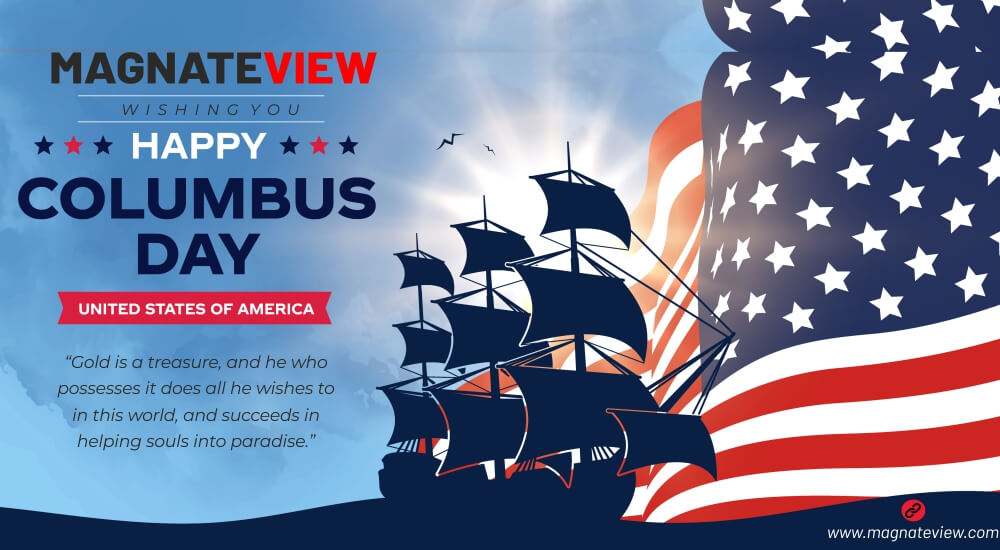Columbus Day is a federal holiday in the United States that commemorates the landing of Christopher Columbus in the Americas on October 12, 1492. It is observed on the second Monday of October each year, which means the exact date changes annually.
Here’s a breakdown of the holiday’s history, significance, and controversy:
- Historical Background:
Christopher Columbus was an Italian explorer who completed four voyages across the Atlantic Ocean under the auspices of Spain, aiming to find a direct sea route to Asia. However, on his first voyage in 1492, he landed in what is now the Bahamas, marking the beginning of European colonization of the Americas.
Columbus’s voyages were significant because they initiated contact between Europe and the Americas, leading to widespread exploration and colonization. - Observance:
- National Holiday: Columbus Day became a national holiday in the U.S. in 1937 under President Franklin D. Roosevelt.
- Date: It is celebrated on the second Monday of October.
- Parades and Celebrations: In many parts of the U.S., especially in areas with large Italian-American communities, there are parades and festivities to honor Columbus’s Italian heritage.
- Controversy:
Columbus Day has become a topic of debate due to the negative impact of European colonization on Indigenous peoples. Criticisms of Columbus focus on:- Colonization and Violence: Columbus’s arrival led to the enslavement, mistreatment, and deaths of many Indigenous people.
- Indigenous Displacement: His voyages paved the way for centuries of colonization, which had devastating effects on Native American populations.
As a result, many people believe that celebrating Columbus Day ignores the suffering of Indigenous people and glorifies colonialism.
- Alternative Observances:
In response to these concerns, several U.S. states and cities have replaced or supplemented Columbus Day with Indigenous Peoples’ Day, which celebrates and honors the histories and cultures of Native American peoples.
Some places that observe Indigenous Peoples’ Day include:- States like Alaska, Oregon, Maine, and New Mexico.
- Cities like Los Angeles, Denver, and Minneapolis.
- Current Perspectives:
Some people still view Columbus Day as an important day to honor Italian-American heritage and celebrate the contributions of immigrants.
Others believe it is important to shift the focus from Columbus to Indigenous peoples to acknowledge the atrocities of colonization.
Summary: Columbus Day remains a controversial holiday. While some celebrate it as a tribute to exploration and Italian-American culture, others advocate for recognizing Indigenous Peoples’ Day instead, focusing on the impact of European colonization on Native Americans.








